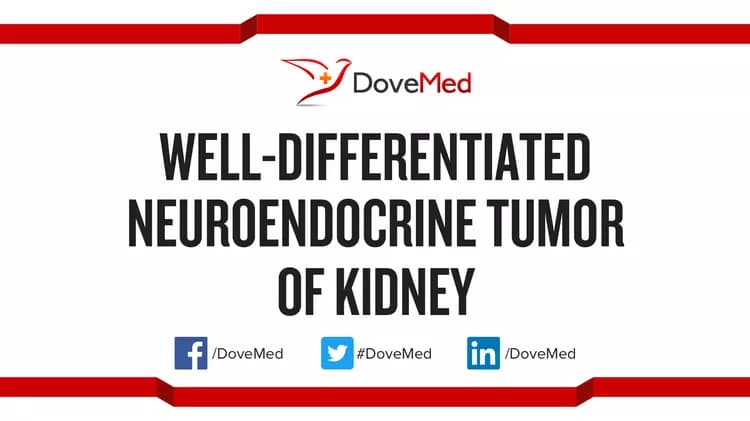
Well-Differentiated Neuroendocrine Tumor of the Genitourinary System
What are the other Names for this Condition? (Also known as/Synonyms)
- Well-Differentiated NET of the Genitourinary System
- Well-Differentiated NET of the Urogenital System
- Well-Differentiated Neuroendocrine Tumor of the Urogenital System
What is Well-Differentiated Neuroendocrine Tumor of the Genitourinary System? (Definition/Background Information)
- Well-Differentiated Neuroendocrine Tumor of the Genitourinary System is a rare low-grade tumor that is seen in the genitourinary tract; the genitourinary or urogenital system includes the urinary and genital organs
- Neuroendocrine Tumors (NETs) are tumors showing neuroendocrine differentiation
- Most of the tumors are observed in the kidney and bladder, while other locations include the urethra, prostate, and testis
Incidence:
- The kidney and urinary bladder neuroendocrine tumors occur in wide range of patients
- Studies have shown the tumor to have a median incidence of 53 years
- The tumors are exceedingly rare, especially in the prostate, testis, and urethra
- Both males and females are equally affected
- All races and ethnic groups are at risk
Risk factors:
- 15% of kidney NETs tumors have been reported in individuals with an anatomical defect called horseshoe kidney
- Other risk factors have not been well-characterized
Cause:
- The cause of tumor formation is unknown
- Studies have shown the tumors to have multiple molecular abnormalities including loss of heterozygosity (LOH) on short arm of chromosome 3 at location p21
- Mutations in CDH1 and TET2 genes have been reported
Signs and symptoms:
- The tumors can arise in a variety of anatomical locations including the kidney, urinary bladder, prostate gland, testicles, and urethra
- Depending on the location of the tumor, the signs and symptoms vary
- The tumors arising in kidney usually results in abdominal pain and blood in urine (hematuria). Urinary bladder tumors present blood in urine
- Some of the individuals with these tumors known to have carcinoid syndrome resulting in signs and symptoms such as:
- Flushing of the face
- Skin lesions on the face
- Breathing difficulties
- Rapid heartbeat
- Diarrhea
- The tumors vary in size from individual to individual (mean size is about 5 cm)
- In some individuals, large sizes have been reported; some renal NETs have been described that are nearly 30 cm in size
- Tumors in the urinary bladder and urethral anatomical sites are usually much smaller measuring 0.3 cm to 1.2 cm in size
Diagnosis: A vast majority of the tumors are detected incidentally.
- Blood and urine tests
- Radiological studies
- Ultrasound of abdomen
- CT and MRI scan of abdomen
- Tissue biopsy of the tumor mass can help achieve a definitive diagnosis:
Complications:
- Emotional stress
- Tumor metastasis to different organs and regions
- Incomplete removal results in tumor recurrence
Treatment:
- The staging of the tumor is performed according to AJCC classification. The staging depends on the site of origin of the tumor
- Treatment depends on the location and the size of the tumor
- It may require a combination of surgery, chemotherapy, and radiation therapy
Prevention: Presently, it is not possible to prevent the formation of Well-Differentiated Neuroendocrine Tumors of the Genitourinary System.
Prognosis: The prognosis is difficult to ascertain since the tumors are extremely rare.
- In general, the stage of the tumor is extremely important when determining the prognosis. Lower stage tumors have better prognosis than higher stage tumors
- The value of Ki-67 proliferative index could be an important factor in determining the prognosis. The Ki-67 proliferative index is evaluated by a pathologist when the tumor specimen is examined under the microscope using special immunohistochemical stain
- Studies have shown that bladder NETs generally have a better prognoses due to their small sizes and superficial locations
Related Articles
Test Your Knowledge
Asked by users
Related Centers
Related Specialties
Related Physicians
Related Procedures
Related Resources
Join DoveHubs
and connect with fellow professionals

0 Comments
Please log in to post a comment.